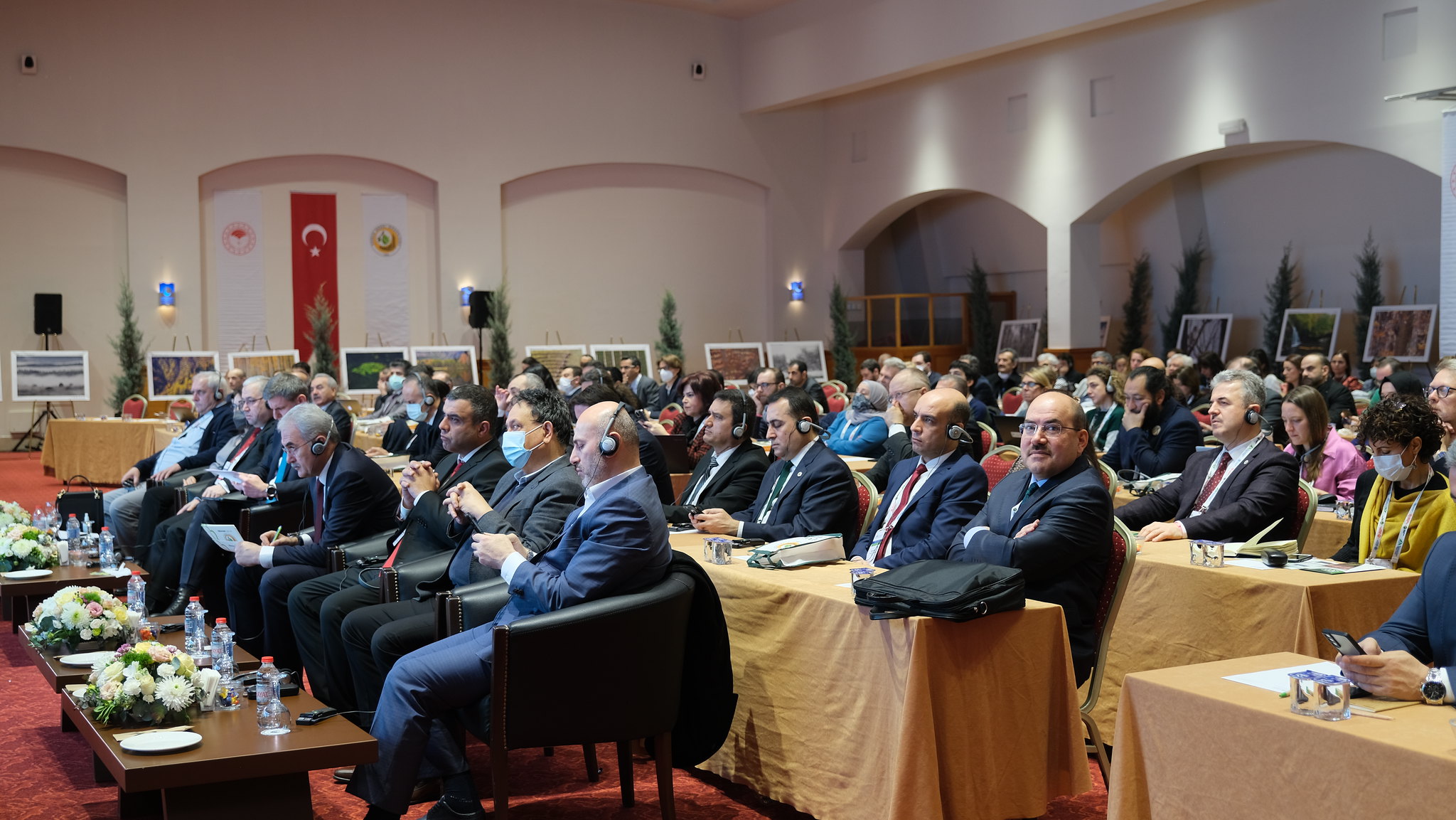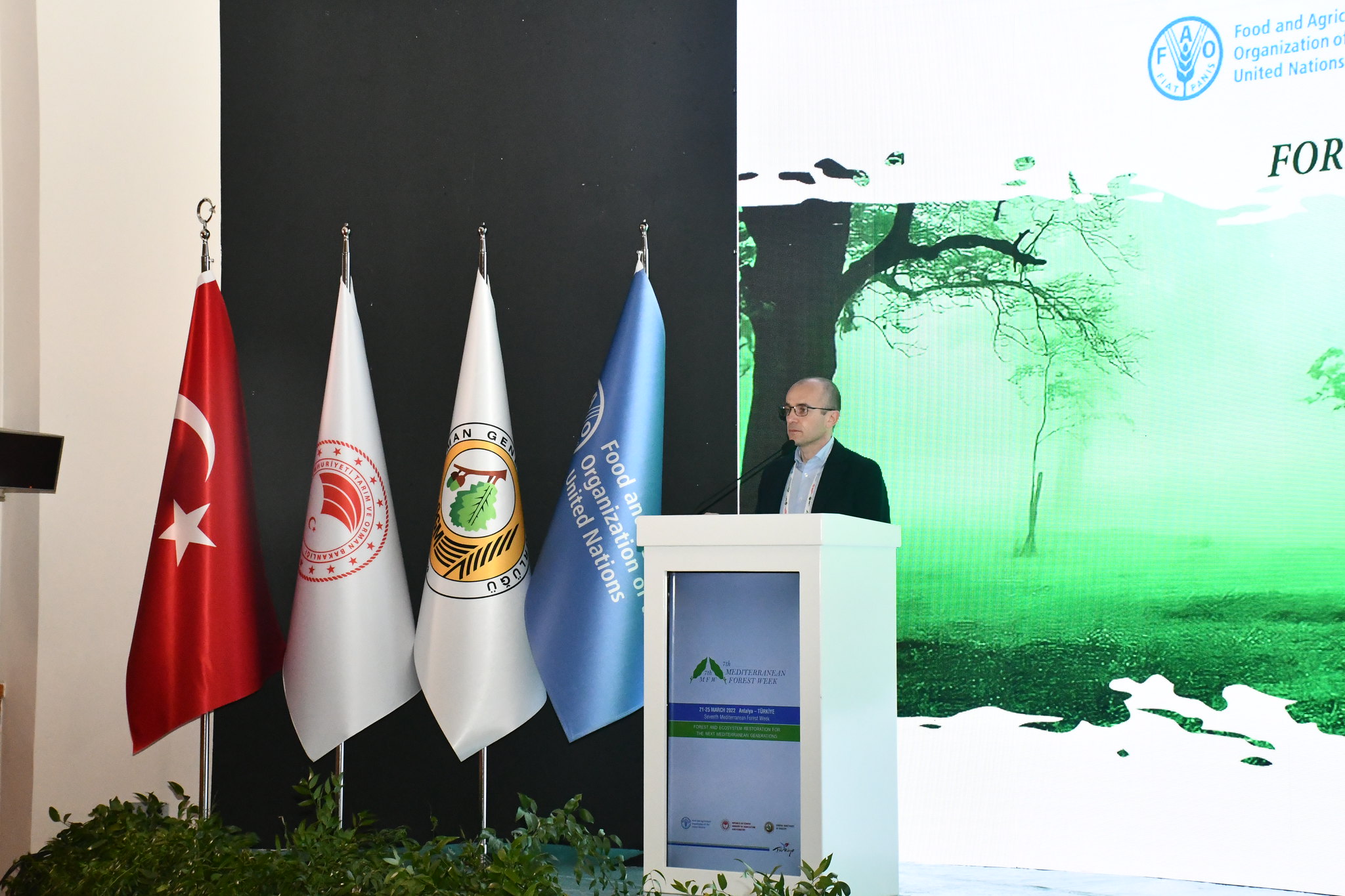Seventh Mediterranean Forest Week (7MFW) - Antalya, Türkiye
Forest and ecosystem restoration for the next Mediterranean generations
Mediterranean forests are part of multifaceted landscapes strongly affected by centuries of human intervention. Despite an increase of 1.8 million hectares of forest between 2010 and 2015, there are 80 million hectares of degraded land in the Mediterranean, including forests. Under such circumstances, forest ecology restoration may be an important action to restore these lands and consequently bring them to a level of health and vigour amidst threats due to global changes. The importance of ecological restoration actions in natural ecosystems is reinforced by recent United Nations initiatives, such as the UN Decade on Ecosystem Restoration 2021–2030.
Mediterranean forests also provide valuable non-wood forest products (cork, chestnut, nuts, resins, mushrooms, aromatic and medicinal plants) and multiple ecosystem services (soil erosion control, water regulation, carbon sequestration, biodiversity conservation and microclimate regulation). Some, but not all, have been included in robust value chains to reach the market. For instance, economic benefits could be derived from non-wood forest products and services that forests can provide, yet several bottlenecks must be solved to have these values recognized.
Building on the Sixth Mediterranean Forest Week (6MFW), where young Mediterranean professionals in the fields of forestry and environment made a vibrant call for more forest-related job opportunities to tackle environmental challenges that they will have to face in a changing global environment, the 7MFW focused its theme on the next Mediterranean generations. Young people in the age range from 15 to 24 years old represent 14 percent of the Mediterranean population, a rate that is trending upwards. The proportion of youth that is not in education, employment or training ranges between 7 and 33 percent, depending on the country. Moreover, there are significant disparities between sub-regions and according to gender.
Building a bridge between forests and the labour force of young Mediterranean people can make a difference and give value to the goods and services provided by forests while implementing forest-based solutions. Improving the social perception of forestry, directing forest management towards participatory approaches and co-management, communicating better on forestry, and aligning forestry education and training with current challenges are key activities in this regard. Furthermore, in order to bridge the aforementioned gap, one must add components like cities, crops, watersheds and the components which interact with forests at the landscape level despite not being part of the forest itself.
Themes
- youth and green jobs providing opportunities using Mediterranean forests;
- forest and landscape-based solutions such as degraded forests, desertification and forest fires;
- forest-based opportunities with a focus on youth generations and gender employment;
- environmental opportunities including the EU Green Deal, Ecological Transition and New EU Forest Strategy;
- the social and cultural dimensions of Mediterranean forests;
- management of Mediterranean forests in view of post-pandemic scenarios;
- non-wood forest products (NWFP) of Mediterranean forests and their relationships with sustainable food systems;
- innovation in Mediterranean forests through case studies and call for actions;
- communication strategies, knowledge transferring and sharing experiences in Mediterranean forests; and
- training and giving experience.
Objectives
- identify opportunities offered to young people by forest-based solutions in the Mediterranean and anticipate possible bottlenecks so that these opportunities become necessities;
- capitalize on successful experiences combining innovative forest management and local populations – particularly the youth – to share this experience among countries for possible replication;
- promote landscape approaches for Mediterranean forests with a focus on the restoration and conservation of biodiversity to open the forest more widely to populations and neighbouring sectors (e.g. cities);
- mobilize all stakeholders involved in the integrated management of Mediterranean forests to facilitate the integration of young people into forest-based solutions; and
- build a common vision of the role of young people in the sustainable management of Mediterranean forests in a changing world.



Mediterranean Youth Dialogue and Mediterranean Youth Statement
The Mediterranean Youth dialogue had the objective to provide a platform to bring youth from the Mediterranean region together, including rural youth and youth organizations, to discuss common challenges and opportunities, showcase success stories and share experiences, good practices and lessons learnt for forest and ecosystem restoration.
Through a bottom-up approach, it contributed to the participation, recognition and visibility of youth in the forestry sector and presented opportunities to find a unified youth regional voice to share recommendations to high-level practitioners and decision makers through the Mediterranean Youth Statement that also fed into the regional consultations of the XV World Forestry Congress.
Poster contest and exhibition from youth
The Seventh Mediterranean Forest Week facilitated cooperation among the research community, policy makers and other relevant stakeholders. A virtual poster session took place during the week in order to contribute to the creation of an environment for dialogue and knowledge sharing.
Young professionals, researchers and students between 18 and 35 years old in the Mediterranean forest sector were invited to submit their posters to contribute to the content of the 7MFW.
The first place winner received a full sponsorship to attend the XV World Forestry Congress in Korea (2–6 May 2022), including the Congress' fees, airfare ticket and Daily Subsistence Allowance (DSA). The second and third place winners received free registration to attend an online course on restoration addressed to young professionals with the Environment, Leadership and Training Initiative (ELTI) of Yale University during the second semester of 2023.
Antalya Declaration
The Antalya Declaration was a main outcome of the 7MFW, which calls for countries and relevant stakeholders to increase restoration efforts and work with each other to address shared environment and climate challenges. These efforts will be evaluated at the next Mediterranean Forest Week. The declaration served to establish a unified approach to Mediterranean Forest and Landscape Restoration initiatives, as well as strengthen the mechanisms currently in place.

